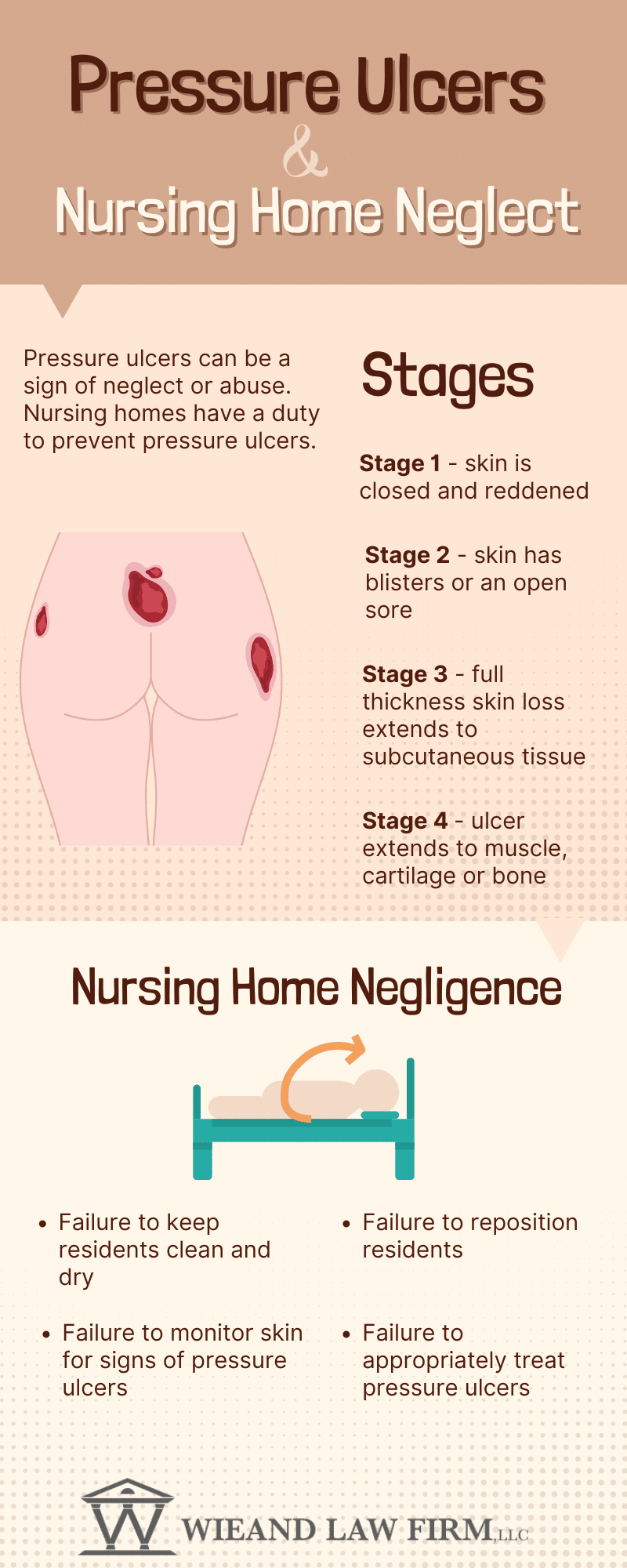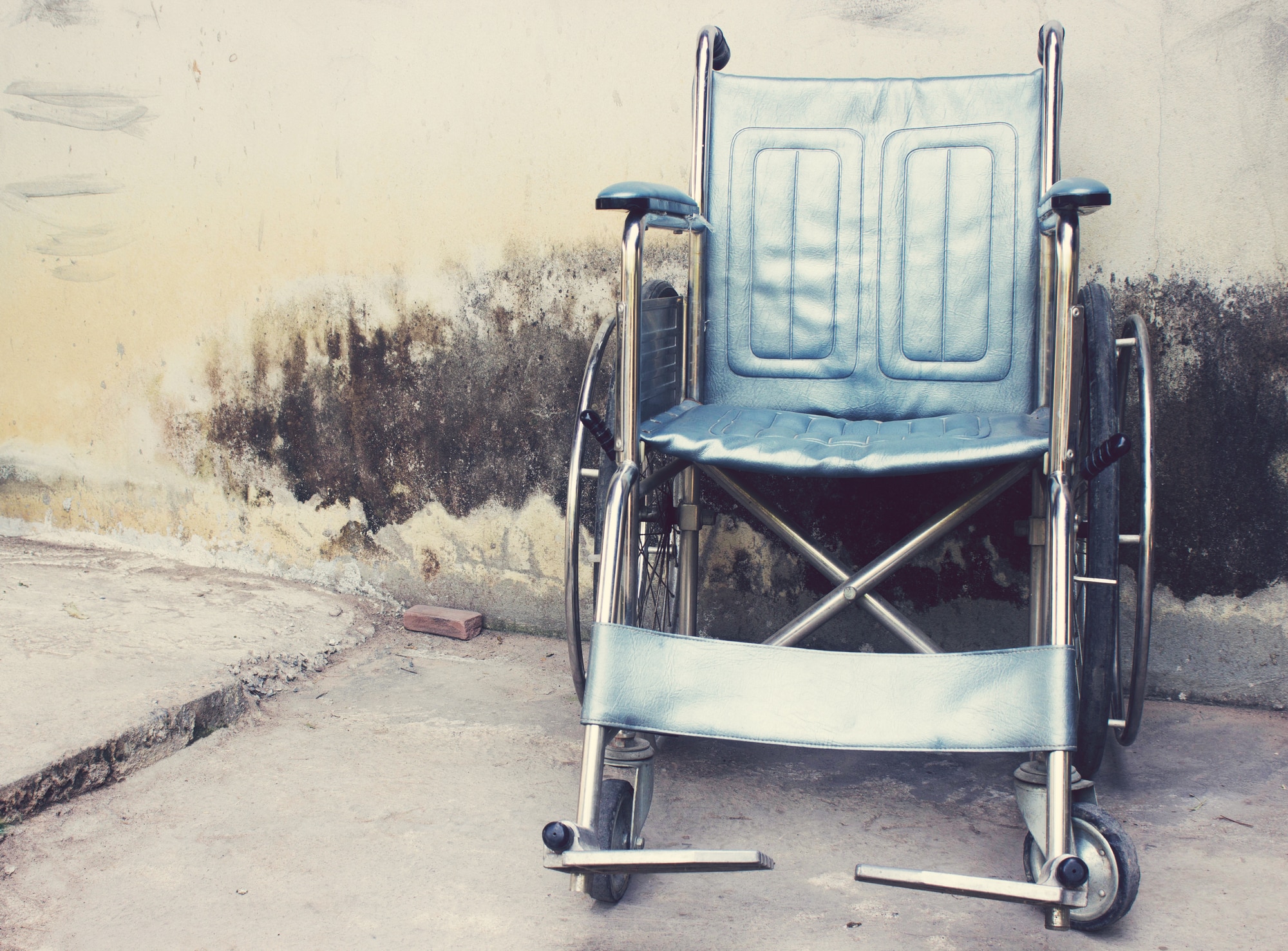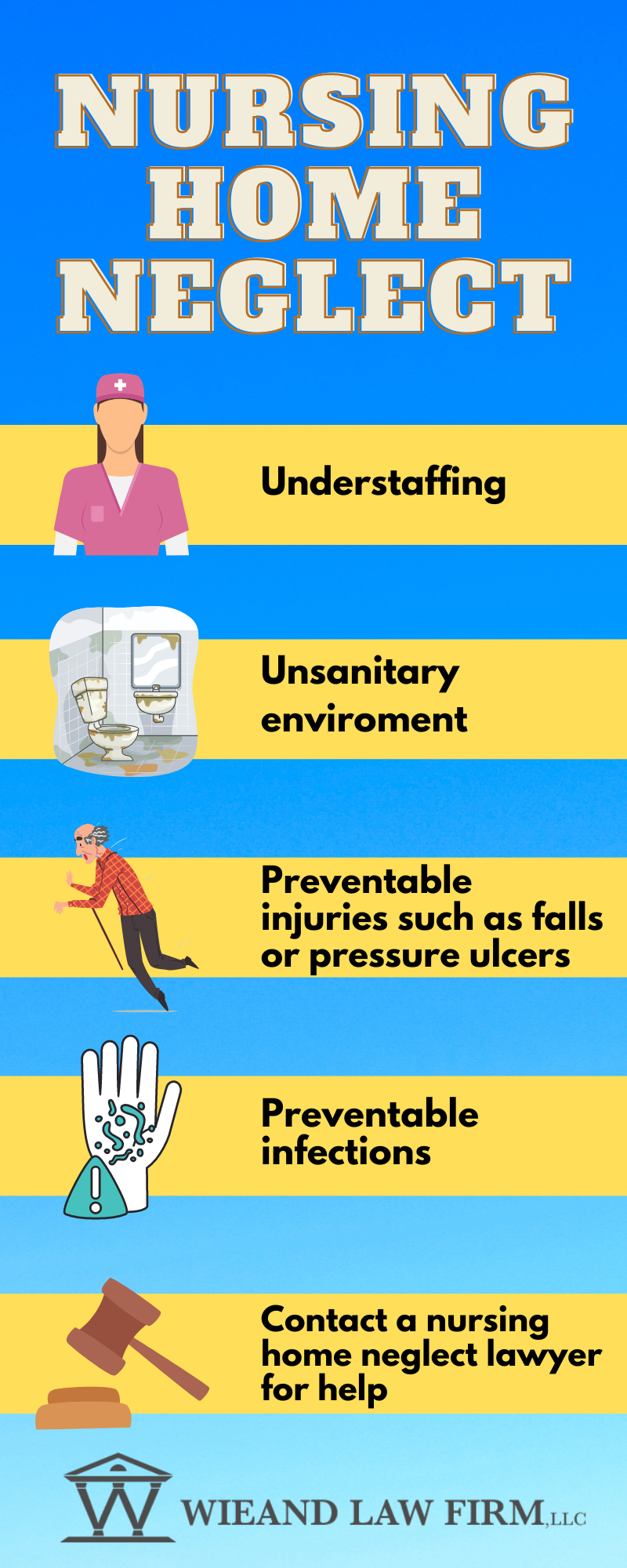 Pressure ulcers, also known as bedsores or pressure sores, are a serious medical condition that can occur when a person is confined to a bed or wheelchair for an extended period. Unfortunately, pressure ulcers are a common problem in nursing homes, and Pennsylvania is no exception. A Philadelphia nursing home lawyer represents clients who have been injured from a preventable pressure ulcer.
Pressure ulcers, also known as bedsores or pressure sores, are a serious medical condition that can occur when a person is confined to a bed or wheelchair for an extended period. Unfortunately, pressure ulcers are a common problem in nursing homes, and Pennsylvania is no exception. A Philadelphia nursing home lawyer represents clients who have been injured from a preventable pressure ulcer.
When a nursing home resident develops a pressure ulcer, it can be a sign of neglect or abuse. Pressure ulcers are preventable with proper care and attention, and nursing homes have a legal duty to provide their residents with a safe and healthy environment.
However, despite this duty, nursing homes in Pennsylvania often fail to take the necessary steps to prevent pressure ulcers from occurring. This can lead to serious harm to nursing home residents, and it is a form of nursing home negligence that can give rise to legal claims for damages.
In this blog post, a Philadelphia nursing home lawyer will explore the issue of pressure ulcer claims at Pennsylvania nursing homes, including the causes of pressure ulcers, the legal standards for nursing home care, and the types of damages that may be available in a pressure ulcer claim.
Pressure ulcers are caused by prolonged pressure on a particular area of the skin. This pressure can cause the skin and underlying tissue to break down, leading to an open sore or wound. There are several factors that can increase the risk of pressure ulcers in nursing home residents:
 Pressure Ulcer Complications
Pressure Ulcer ComplicationsPressure ulcers, also known as bedsores or pressure sores, can lead to a variety of complications if left untreated or if not properly managed. Here are some common complications that can arise from pressure ulcers:
It is important to seek prompt medical attention if you or a loved one develops a pressure ulcer, to prevent these and other potential complications.
Nursing homes in Pennsylvania are required to provide a certain standard of care to their residents. Federal and state regulations outline that nursing homes must follow to provide safe and adequate care to residents.
Under federal law, nursing homes have a legal duty to provide their residents with:
In addition, nursing homes must take steps to prevent pressure ulcers from developing in their residents. This includes:
When nursing homes fail to provide this standard of care, they may be liable for damages if a resident develops a pressure ulcer. A Philadelphia nursing home lawyer at the Wieand Law Firm is well informed of nursing home regulations and has litigated numerous pressure ulcer lawsuits throughout the state of Pennsylvania.
If a nursing home resident develops a pressure ulcer due to nursing home negligence, a Philadelphia nursing home lawyer can help the resident or their family file a claim for damages. Damages in a pressure ulcer claim may include:
It is important to note that the types and amount of damages that may be available in a pressure ulcer claim will depend on the specific circumstances of the case. An experienced Philadelphia nursing home lawyer can help a resident or their family understand their legal options and seek the maximum possible compensation for their losses.
 How Long Does a Nursing Home Lawsuit Take?
How Long Does a Nursing Home Lawsuit Take?Clients often wonder, “how long does a nursing home lawsuit take?” The length of time it takes to resolve a nursing home lawsuit can vary widely depending on a variety of factors, including the complexity of the case, the number of parties involved, and the court’s schedule. In general, nursing home lawsuits can take anywhere from several months to several years to resolve.
The initial phase of a nursing home lawsuit involves filing a complaint with the court, which outlines the allegations of negligence or abuse against the nursing home. The nursing home will then have the opportunity to respond to the complaint and may file a motion to dismiss the case or seek other pretrial rulings.
After the initial pleadings are filed, the parties will typically engage in a period of discovery, during which they exchange evidence and information relevant to the case. This can involve depositions of witnesses, requests for documents, and other forms of evidence gathering.
Once discovery is complete, the parties may attempt to resolve the case through mediation or settlement negotiations. If a settlement cannot be reached, the case will proceed to trial, where a judge or jury will hear the evidence and decide as to whether the nursing home was negligent or abusive.
The length of time it takes to resolve a nursing home lawsuit can depend on several factors, including the complexity of the case, the number of parties involved, and the court’s schedule. In some cases, a settlement may be reached relatively quickly, while in other cases, it may take several years to resolve the matter through trial.
It is important to keep in mind that nursing home lawsuits can be emotionally and financially draining for the plaintiff and their family, and it is important to work with an experienced attorney who can help guide you through the process and protect your rights. Speaking with a Philadelphia nursing home lawyer can help you answer the question, “how long does a nursing home lawsuit take.”
There have been successful pressure ulcer lawsuits in Pennsylvania, where nursing homes have been found liable for their negligence in causing or contributing to the development of pressure ulcers in their residents. Here are some examples:
These cases demonstrate the serious consequences of nursing home negligence in preventing and treating pressure ulcers. They also show that nursing homes can be held accountable for their actions through legal action, which may result in significant compensation for the resident or their family. A Philadelphia nursing home lawyer at the Wieand Law Firm provides experienced representation to families who have suffered losses from nursing home negligence.
 Call The Wieand Law Firm Today
Call The Wieand Law Firm TodayIf you or a loved one has suffered a pressure ulcer at a nursing home, it’s important to seek legal assistance from an experienced Philadelphia personal injury attorney who can help you navigate the complexities of the legal system. The Wieand Law Firm has a proven track record of success in handling cases related to nursing home abuse and neglect, including cases involving pressure ulcers. With a focus on client satisfaction, the attorneys at Wieand Law Firm will provide you with personalized attention and dedicated representation throughout your case. Contact Wieand Law Firm today for a free consultation and to discuss your legal options. With no money out of pocket, you can trust that your case will be handled with care and compassion. Call (215) 666-7777 or visit their website to schedule a consultation today.